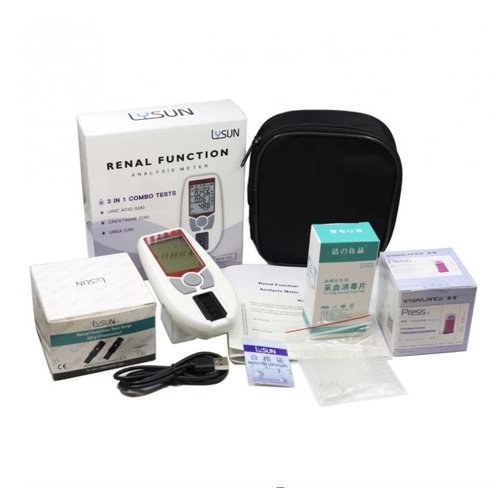
A renal function tester typically measures several key parameters to assess kidney health. These include serum creatinine levels, which indicate how well the kidneys are filtering waste; blood urea nitrogen (BUN), which provides information on protein metabolism and kidney function; and glomerular filtration rate (GFR), which estimates the rate at which the kidneys filter blood. Additionally, it may measure electrolytes like sodium, potassium, and calcium, as well as urine protein levels. These parameters collectively help in diagnosing and monitoring conditions such as chronic kidney disease, acute kidney injury, and other renal disorders.

The time it takes to get results from a renal function test can vary depending on the specific test and the laboratory processing it. Generally, basic blood tests like serum creatinine and blood urea nitrogen (BUN) can yield results within a few hours to a day. More comprehensive tests, such as a 24-hour urine collection for creatinine clearance, may take longer, typically 1-2 days. If the tests are conducted in a hospital setting, results may be available more quickly. Always consult your healthcare provider for the most accurate timeline based on your specific situation and testing facility.
Technical & Sales Support